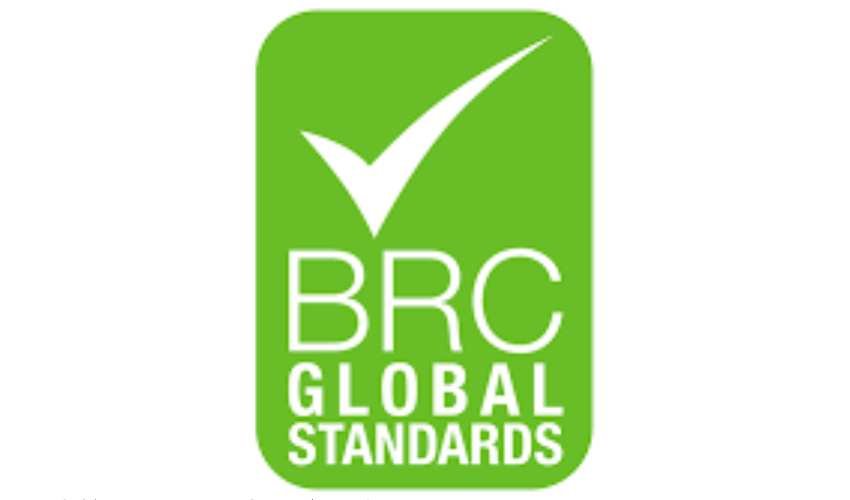
BLOG

BRC Certification
The BRC Certification ((British Retail Consortium certification) is a globally recognized food safety standard that helps organizations demonstrate their commitment to food safety and quality. As part of the GFSI (Global Food Safety Initiative) standards, British Retail Consortium Certification ensures that companies adhere to rigorous food safety practices, from production to packaging. This article explores the BRC certification cost and its connection to GFSI and answers common questions related to GFSI, BRC, and FSMA.
What is BRC Certification?
BRC Certification is a globally acknowledged food safety standard created by the British Retail Consortium to ensure that suppliers meet high food safety, operational, and quality standards. It is primarily used by food manufacturers, packaging companies, and foodservice providers to demonstrate compliance with regulatory requirements and customer expectations.
British Retail Consortium Certification has become a vital part of global food safety efforts, and it’s particularly important for businesses looking to operate internationally or supply to major retailers.
What is GFSI and its Role in Food Safety?
GFSI (Global Food Safety Initiative) is a collaborative initiative that brings together key players in the food industry to promote food safety standards worldwide. The GFSI sets benchmarking requirements for food safety schemes, ensuring consistent and reliable certification processes.
What is GFSI Certification?
GFSI certification refers to achieving certification through a food safety standard recognized by GFSI. Some of the most common GFSI-recognized standards include BRC, FSSC 22000, and SQF. By attaining a GFSI-recognized certification, companies demonstrate their commitment to high food safety standards.
How to Get GFSI Certification?
To achieve GFSI certification, companies must first choose a GFSI-recognized food safety standard, such as BRC. The next steps include conducting a gap analysis, implementing the necessary systems, and undergoing an audit by an accredited certifying body. Depending on the size and complexity of the organization, the process may take a few months to a year.
BRC Certification Process
The British Retail Consortium Certification process consists of several steps:
Preparation
A company should first familiarize itself with the BRC standards and assess its current practices. A gap analysis will identify areas that need improvement.
Implementation
The company then implements changes based on BRC requirements. This could include improving facility hygiene, employee training, or record-keeping procedures.
Internal Audit
Before the official audit, businesses conduct an internal audit to ensure that all necessary changes have been implemented.
Certification Audit:
An independent certifying body conducts the official audit. If the company passes, it will receive British Retail Consortium Certification.
Ongoing Compliance
BRC certification requires ongoing compliance, with audits typically taking place annually to ensure continued adherence to standards.
BRC Certification Cost
The BRC certification cost can vary widely depending on the size of the company, the complexity of its operations, and the region in which it operates. In general, small to medium-sized businesses can expect to pay between $3,000 and $10,000 for the initial certification process, while larger organizations may face higher costs due to more extensive audits.
Additional costs may include the price of training programs, consultations, and any infrastructure changes required to meet the standard.
Importance of BRC Certification
BRC certification plays a key role in helping businesses maintain food safety, comply with regulatory requirements, and meet customer expectations. For companies looking to enter international markets or supply major retailers, achieving British Retail Consortium Certification is often a requirement.
Additionally, having GFSI certification enhances a company’s reputation, opening the door to new business opportunities and partnerships. It assures customers and regulators that the company is committed to producing safe, high-quality products.
Conclusion
Obtaining BRC certification is a critical step for food businesses that want to demonstrate their commitment to food safety and quality. This certification, recognized by GFSI, ensures that companies meet the highest global standards. While the BRC certification cost can vary, the benefits of achieving it far outweigh the initial investment. It allows businesses to enter new markets, build consumer trust, and comply with regulations like FSMA.
By understanding GFSI meaning and the GFSI standards, businesses can better navigate the complex world of food safety and gain a competitive edge. With the right preparation and training, achieving British Retail Consortium Certification can be a smooth and rewarding process for any organization in the food industry.

BRC Certification FAQs
What is GFSI?
GFSI, or the Global Food Safety Initiative, is an industry-driven initiative that sets global standards for food safety management systems. It brings together food safety experts to create a consistent, global approach to food safety, helping companies operate smoothly across borders.
What is GFSI Certification?
GFSI certification refers to certification under a GFSI-recognized food safety standard. GFSI recognizes standards such as BRC, SQF, and FSSC 22000, and achieving certification under these programs ensures that a company meets stringent food safety and quality criteria.
How to Get GFSI Certification?
To obtain GFSI certification, a company must select a GFSI-recognized standard like BRC, conduct a gap analysis, implement the necessary changes, and undergo an audit from a certifying body. This process ensures the company meets the global standards for food safety.
What is BRC Certification?
BRC stands for British Retail Consortium, and its food safety standards are widely recognized for ensuring the safety, quality, and legality of food products. British Retail Consortium Certification is a GFSI-recognized standard that companies use to demonstrate their commitment to food safety.
What is FSMA?
FSMA, or the Food Safety Modernization Act, is U.S. legislation aimed at preventing food contamination incidents. It requires food companies to implement preventive controls and food safety plans to ensure that their products are safe for consumption. FSMA and BRC share similar goals of promoting proactive food safety practices.
